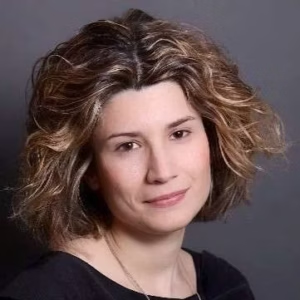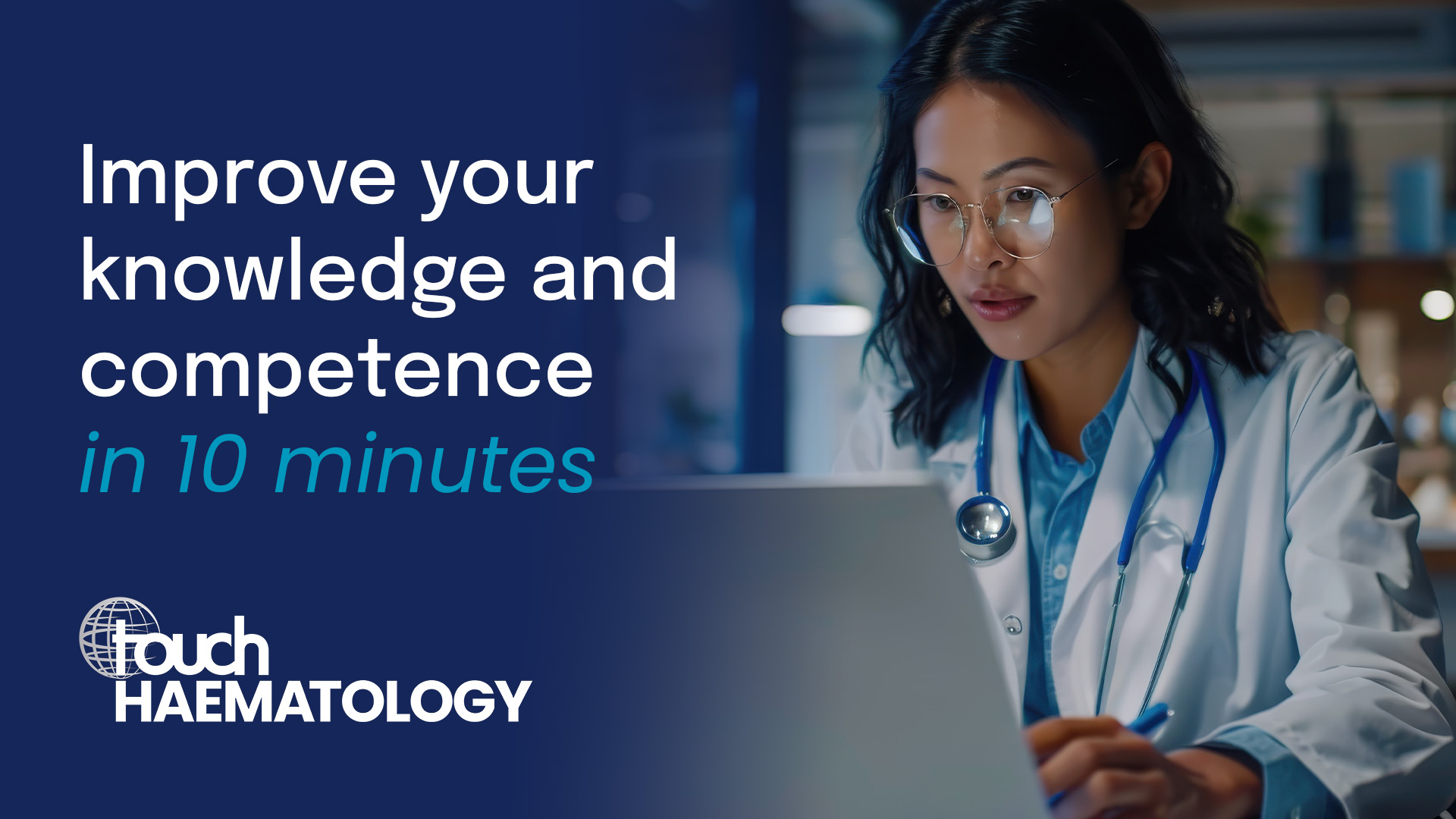
“You need to be comfortable with both the laboratory and the critically ill patient – that’s haematology”
Dr Eleni Gavriilaki (Assistant Professor, Aristotle University of Thessaloniki, Greece) combines clinical expertise, laboratory research and international collaboration to advance the care of patients with complex blood disorders. In this interview, she shares how being guided by her mother, a fellow haematologist, a pivotal encounter with a patient cured by imatinib and mentorship from leading figures in the field has shaped her journey. She reflects on the emotional challenges of being a clinical haematologist, the importance of adaptability and why young specialists should embrace both the lab and the clinic.
Q1. Is there a particular moment or experience in your career that reinforced your passion for your specialty?
That’s a very good question – one that gives me a lot of food for thought. I think there are several moments when you decide on your specialty and then continue to reaffirm that choice. When I finished medical school, I started working with a very successful internal medicine team. They tried to persuade me to follow a general internal medicine path instead of haematology. I considered it, but then I met a patient with chronic myeloid leukemia (CML) who had been cured with imatinib, the first tyrosine kinase inhibitor. It was one of the first true targeted therapies in cancer, and it was a pivotal moment for me. It reminded me why I had always been drawn to haematology. Choosing a specialty isn’t just about one moment, though – there are many factors to consider. In haematology, you need to enjoy both lab work and being with patients, including those who are critically ill. You have to feel comfortable in both environments, and constantly adapt, to become a hematologist.
Q2. Can you tell us about a mentor who has had a significant impact on your career, and the most valuable lesson they shared with you?
I don’t think there is just one mentor in a career. For me, my lifelong mentor is my mother, who is also a hematologist. I followed her career closely as a child and saw the impact of new treatments like imatinib on patients.
Later, I had the opportunity to work with Dr Robert Brodsky at Johns Hopkins in Baltimore. He is a hematologist and transplanter, and he played a key role in shaping my current field of expertise – complement-mediated diseases. One of the most memorable lessons he taught me came from a surprising source. He once asked, “Do you know my favourite scientific article?” I expected it to be a major haematology paper or something on complement or paroxysmal nocturnal hemoglobinuria, since that’s his area of expertise. But instead, he mentioned an article from Science about bee communities. The article explained that not all bees work equally – some work more than others, and it’s this small group that drives the entire community’s productivity. For both of us, I think, this idea of being a ‘doer’ – someone who actively contributes – really resonated. That lesson stayed with me.
Q3. What aspects of your work do you find most challenging and fulfilling?
For me, the most challenging and most fulfilling part is being close to the patient. That’s the core of everything we do – trying to help people. It can be incredibly difficult when a patient is critically ill, and you know they may not survive. When there’s nothing more you can do, it’s emotionally very tough. You have to find a balance – to remain compassionate but also a bit emotionally detached.
Still, I try to approach each patient as if they were a family member – my mother, sister, father or friend – depending on the case. If a patient is unsure or doesn’t trust me at first, I’ll say something like, “If you were my mother, this is exactly what I would do for you.” That helps build trust and shows them I genuinely care.
Of course, not every patient is easy to connect with, but most of them do trust us – we’re the experts. Still, we’re making life-altering decisions for them, so we need to be very mindful of that responsibility.
Q4. What advice would you offer to those just beginning their journey in your specialty?
I try to teach and also inspire students to consider haematology – which can be a challenge in itself. My first piece of advice is to make sure you enjoy both lab work and the clinical setting. In most haematology roles, you’ll need to be comfortable with both.
Secondly, you need to be familiar with the concept of death. That’s a reality in our specialty. It’s okay if someone realises they’re not comfortable with that – it just means this might not be the right field for them.
Finally, haematology is a field in constant evolution. There’s a lot of R&D driving progress, and we’re seeing new therapies and techniques emerge all the time. You need to keep adapting – even if you’re 65 or 70, you should still be learning. We’ve seen haematologists who have worked for decades but continue to evolve. That’s not easy – many people don’t want to keep learning – but in our field, it’s essential. haematology moves quickly, and that’s largely due to the strong R&D behind it.
Disclosure: Eleni Gavriilaki has no financial or non-financial conflicts of interest in relation to this article.
Cite: Q&A with Dr Eleni Gavriilaki: touchHAEMATOLOGY Future Leader 2025. June 24th, 2025
Interviewer: Caroline Markham
SIGN UP to touchHAEMATOLOGY!
Join our global community today for access to thousands of peer-reviewed articles, expert insights, and learn-on-the-go education across 150+ specialties, plus concise email updates and newsletters so you never miss out.


